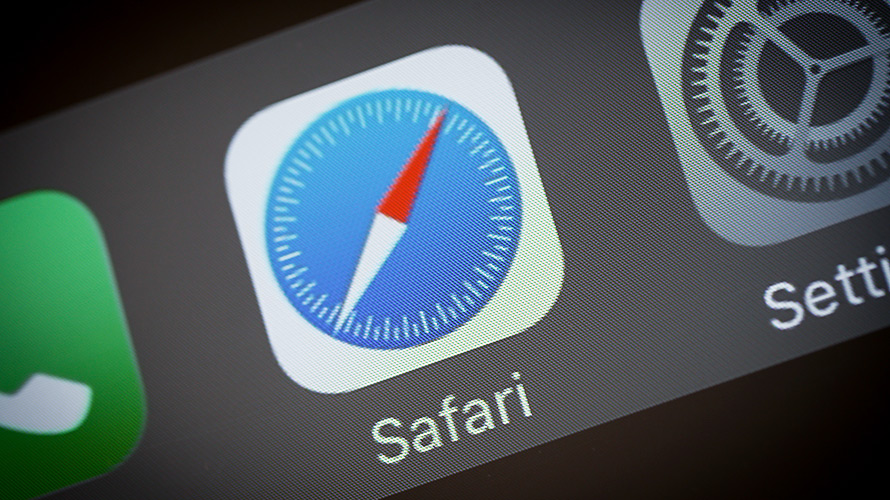Apple’s new anti-tracking feature
June 5, 2018 | Expert Insights

Apple has announced an anti-tracking feature that will limit websites’ access to user browsing data. This has the potential to impact online advertising strategies, as well as sites such as Facebook, which rely on online advertisements to run their businesses.
Background
Apple Inc. is one of the most successful multinational technology companies in the world. It was
founded by Steve Jobs, Steve Wozniak, and Ronald Wayne in April 1976 and incorporated in January 1977. It currently designs, develops, and sells consumer electronics, computer software, and online services. Apple’s consumer software includes the macOS and iOS operating systems, and the Safari web browser. Its online services include the iTunes Store, the App Store, Apple Music, and iCloud. Apple’s current CEO is Tim Cook.
Facebook and privacy
Facebook is one of the largest social media corporations in the world. Initially founded by Mark Zuckerberg in 2004, it had approximately 2 billion monthly users in 2017, and has over 14 billion registered users. Facebook has faced increasing controversy in recent years. The company has been criticised for its failure to address hate speech and terrorist propaganda, the presence of bots, and the proliferation of “fake news”. Facebook is thought to have been a key influencer in the 2016 US Presidential election and the Brexit vote, where it, allegedly, served as a platform for Russian interference.
Most recently, the company was brought into the spotlight for its involvement in the Cambridge Analytica data scandal. A data breach allowed the political consultancy and data mining firm access to the personal information of up to 87 million Facebook users. The Federal Trade Commission is currently undertaking a probe to find out whether Facebook failed to protect customer privacy. Critics claim that Facebook’s business model itself is based on data exploitation. Facebook is reliant on advertisements for revenue. Mark Zuckerberg admitted that Facebook collects data on both users and non-users as well. Facebook collects “cookies” from all sites with Facebook “like” and “share” buttons. “Cookies” are small pieces of data sent from a website and stored on a user’s computer. They store data on user preferences or browsing activity. Facebook has faced litigation from European courts on this issue. In its defence, Facebook has stated that this kind of data collection is “fundamental to how the internet works,” and other services use similar strategies.
Analysis
Last September, Apple launched a beta feature on its Safari browser, called Intelligent Tracking Prevention. The software limits the use of cookies that track browser histories. Cookies are a critical part of online advertising as they help tailor personalised advertisements. Apple’s software chief Craig Federighi has announced that this feature will be operational in the next version of Safari, iOS, and Mac operating systems. “We’ve all seen these - these like buttons, and share buttons and these comment fields… Well it turns out these can be used to track you, whether you click on them or not” Federighi explained. “Do you want to allow Facebook.com to use available data while browsing?
Apple’s latest update will ask user permission before allowing Facebook to track their activity. The new MacOS Mojave will also counter “fingerprinting”, a technique advertisers use to continue to track users who delete their cookies”, Federighi added. The latest update will provide web pages with less details about individual computers. This will make it “dramatically more difficult for data companies to uniquely identify your device”,Federighi said.
While anti-tracking software already exists, Apple’s Safari is the first browser to institute Intelligent Tracking Prevention “I think that the privacy thing has gotten totally out of control and I think most people are not aware of who is tracking them, how much they’re being tracked and the large amounts of detailed data that are out there about them ... We think privacy is a fundamental human right,” Apple CEO Tim Cook recently told CNN. Cook has previously criticised Facebook’s practices as an “invasion of privacy.”
Counterpoint
Critics have claimed that this feature will “sabotage” the current economic model of the internet. Ben Bajarin from market research firm Creative Strategies tweeted that a “key takeaway” was that
“Apple really dislikes the free service with advertising business model.” Advertising groups claim that blocking cookies will make advertising more generic and less useful. The feature could also benefit more popular companies such as Facebook and Google, these groups claim. Smaller, third-party advertising companies would be most severely impacted. Google and Facebook already control approximately 90% of advertising web revenue in the US.
A recent New York Times report has claimed that Apple had an agreement with Facebook to obtain user data. NYT said that in return, Apple included Facebook features in their products. CEO Tim Cook has denied this. “The things mentioned in the Times article about relationship status, all these kinds of things, is so foreign to us, and not data that we have ever received at all or requested – zero,” Cook told NPR. “We weren’t in the data business.”
While Apple has always had a strong stance on privacy and security (it has previously refused to provide US law enforcement with encryption codes), critics have noted that this privacy does not extend to some features such as iCloud. Data backed up to iCloud is not private from the government or Apple, experts have noted.
Assessment
Our assessment is that this is a strong move by Apple to protect data privacy. This move has the potential to impact the digital advertising industry. Apple is widely perceived as a trendsetter in the tech industry. If other browsers begin to tighten their policies on data and tracking, it could adversely affect the business model followed by a number of web-based firms, including Facebook. As stated previously, Facebook has shown notable reluctance to change its business model thus far.








Comments